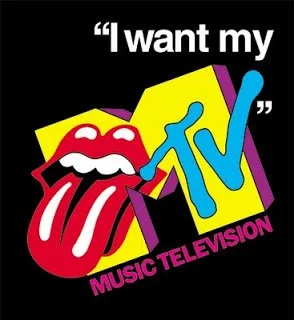The Reality of MTV - A Nostalgic Look Back at When Music Television Actually Played Music
This post is dedicated to all of us who remember when MTV— Yes, when Music Television—actually revolved around music. If you were lucky enough to grow up in the ‘80s or early ‘90s, then you remember what it felt like to rush home, flip on MTV, and catch the latest music videos, iconic VJs, and genre-defining shows like Yo! MTV Raps, Headbangers Ball, and Dial MTV.
Contrary to popular belief, MTV wasn’t always a nonstop stream of reality shows and social media-style content. Once upon a time, MTV was the go-to destination for discovering new music, seeing your favorite artists perform, and staying connected to the pulse of pop culture.
So... what happened?
MTV: From Music Video Powerhouse to Reality TV Central
MTV Artists, 1980's
Let’s start with what MTV actually stands for: Music Television. Not Mom TV. Not Meme TV. Not Mindless Trash Variety. MUSIC. TELEVISION.
In its heyday, MTV was the place to see the freshest music videos, catch world premieres, and watch groundbreaking performances. From Michael Jackson’s global video debuts to Nirvana’s game-changing Unplugged set, MTV gave music a visual platform—and gave fans a reason to care.
Then came the turning point: The Real World.
When MTV aired The Real World in 1992, it was one of the first reality shows ever created. No one knew then that it would mark the beginning of MTV’s long, slow drift away from music altogether. That one show opened the floodgates to decades of reality programming: Road Rules, Laguna Beach, Teen Mom, Jersey Shore, Ridiculousness—and on, and on, and on.
a snapshot of mtv’s scheduule:
Let’s look at an actual MTV programming schedule from September 11, 2011:
6am–9am: Jersey Shore
10am: Mr. Deeds (a movie, not music)
12pm–1pm: Ridiculousness
1pm–3pm: Teen Mom
3pm–5pm: Jersey Shore (again!)
5pm–8pm: True Life
8pm–10pm: More Jersey Shore
10pm–1am: Teen Mom, Awkward, and more Ridiculousness
1am–5:30am: Fantasy Factory and Cuff’d
Guess what? Not one actual music video aired during that 24-hour span?
Just one music-related item made the cut: a replay of the MTV Video Music Awards—which, let’s be honest, hasn't truly focused on music or artistry in over a decade. The rest? Scripted drama, viral video compilations, and glorified reality soap operas.
Where Are the VJs? Where’s the Culture?
MTV VJ’S 1980’s
Back in the day, MTV had Video Jockeys—aka VJs—who introduced the videos and gave context to the artists. Names like Downtown Julie Brown, Daisy Fuentes, Kennedy, Fab 5 Freddy, and Dr. Dre & Ed Lover were household staples. These personalities connected fans to the music and made MTV feel like more than just a video stream.
Today, most under-25 viewers probably have no idea what a VJ even is. And that’s a shame, because those figures helped define an entire generation of music lovers.
Remember When the World Stopped for a Music Video?
Remember the time…
(See what I did there!)
Michael Jackson, Remember The Time, 1992
When Michael Jackson dropped a new music video, and it was a worldwide event. Everyone stopped what they were doing. TV sets across the globe were tuned into one channel: MTV.
Or when the MTV VMAs were more than just a chaotic pop culture circus. They used to be exciting, creative, even artistic. We looked forward to seeing what new boundaries artists would push—not which reality star would walk the red carpet.
Final Thoughts: I Want My MTV Back
MTV used to set the trends. It used to give artists a launchpad. Now, it follows trends created on social media platforms—and rarely champions the very thing it was built on: music. To those of us who remember the golden age of MTV, this isn’t just nostalgia—it’s frustration. The need for a platform dedicated to music hasn’t disappeared. If anything, it’s stronger than ever.
Music videos still matter. Music still shapes culture.
Music connects us. Music tells our stories. And music deserves more than a two-hour time slot buried in a reality TV marathon.
So for everyone over the age of 25 still wondering what happened: You're not alone. We want the real MTV back—the one that made us feel something. The one that played music.





